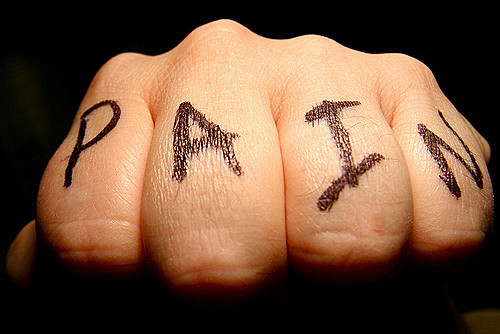
Here is a topic that in my recent years of practicing realized the SIGNIFICANT IMPORTANCE of teaching my patients on the science of pain-what it is, why it’s happening and what they can do to either to get ride of or to manage it. Keep in mind that the principles of pain the I am about to talk about does not only limit to lower back pain.
I learned about the science of pain after my mentor encouraged me to follow Adriaan Louw a renown author, scholar and a physical therapist on his research of neuroscience of pain. I have to say that after taking courses and reading many research articles, that the way I practiced has only gotten better and my patients were my proof.
It made a world of difference to talk about this and I believe that when you have a better understanding of your situation you feel more hopeful and start to take back control of your body and your life, which is empowering!
Many researches show that when people living with pain learn about the science behind it, it eases their hesitancy to moving again-getting back to activities that you once enjoyed and pain intensity itself can lessen.
So lets start the journey of understanding the science of pain. Trust me it will be eye opening and I get so pumped about talking about this. So lets begin shall we?
The first thing I would like to say is that pain is normal and very real, it is our body’s system of protection and very critical our survival. We need pain and here’s why.
Lets say that you accidentally step on your kids Lego on the floor and quickly you jump off the Lego muttering a 4 letter word. It’s your brain that tells you, “Hey, take your foot off that ASAP or you’re going to keeping hurting yourself!” Another prime example is that instinctive reaction of taking taking your hand off that hot pot you accidentally touched. If you didn’t experience pain, would you continue to burn your hand?
While to experience pain is normal and needed, to live with chronic pain is not. The tissues in our body are meant to heal and they probably have. Surprisingly it isn’t the tissue that are the culprit of pain but the brain and let me explain why.
The brain is the control center where details are assessed, such as the “hows, why and what” you’re physically feeling. Nerves of and surrounding area of the injured body part send “danger signals”, NOT pain signals (there is not such thing as “pain signals”) up the spinal cord to the brain.
Once danger signals reach the brain it is there that the concept of “pain” is actually established and the brain decides the next course of action to protect that area.
So let’s go back to the Lego example. You step on Lego that your kid left in the middle of the floor. That pressure on your foot spikes the nerve electric impulses of that area sending important “danger signals” to the brain. The brain then orders you to take your foot on the Lego and to blurt a 4 letter word(s), all in the matter of milliseconds. Once you remove the foot, the electrical impulses return to normal, low and steady state.
The problem lies when the nerve impulses don’t calm down to it’s normal state even when the object that caused danger signals is no longer there.
High electric impulses of nerve = constant signaling to the brain”danger, danger, danger x100.” The is overwhelming to say the least.
Over time, the impulses that stay high become extra sensitive. That extra sensitivity is what leads to not wanting to move as much, release of stress hormones, emotional and psychological changes because of frustration, lack of sleep, etc. All in all, your quality of life starts to diminish.
So you see, prolonged pain does not necessarily mean that your tissues are more damaged because tissues heal! Rather the nerves in the area and surrounding areas are overwhelmed.
Also know that nerves have all these cool characteristics about them. For example, does your pain get worse in cold weather? Can you not move as much or as well as you did before? Does you pain level go up when you’re stressed out or when you’re sick? There’s an explanation for all this.
Nerves are made up of different sensors detecting temperature changes, stress hormones, physical movement, immunity and blood flow constantly relaying info to your brain just to let it know how it is doing.
But if your nerves are already on high alert, these sensor also stay on high alert very attentive to temperature, movement, stress, etc as you have probably noticed.
I know what you’re thinking. You’re asking, so what can I do to desensitize my nerves? I would suggest 2 things but in the book you can find Louw suggest various things.
First, read Why Do I Hurt by Adriaan Louw. He does a PHENOMENAL job of breaking the science of pain and provides with much more details that are very relevant to your pain . THIS IS A MUST READ! It will be 30 min well spent!
Check it out on Amazon.
Second, consult with movement specialist to getting to back to moving again! You want to make sure that you get back to moving safely and correctly.
Go Back to Home Page.